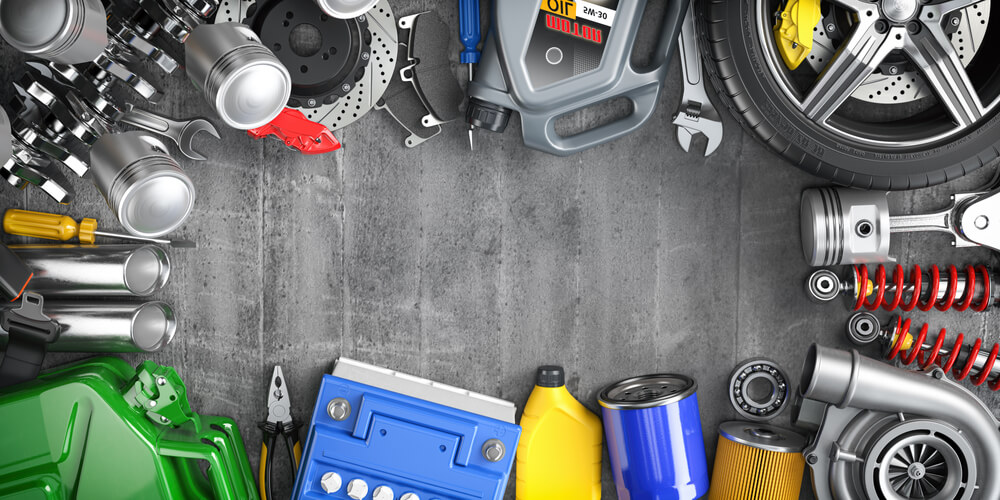If you have an old, worn-out car that’s no longer fit for the road, you might be wondering what to do with it. One option that often crosses people’s minds is selling it for parts. This can be an attractive prospect, especially if you’ve heard stories of people making good money from parting out their vehicles. But is it really worth it? In this comprehensive guide, we’ll explore the ins and outs of cash for used cars for parts and help you decide if it’s the right choice for you. From assessing the value of your vehicle to understanding the selling process and considering alternative options, we’ll cover all the essential aspects of this decision.
Assessing the Value of Your Vehicle
Before diving into the world of selling your car for parts, it’s crucial to assess its value. Not every car is worth parting out, and some may be better off sold as a whole. Here are some factors to consider when determining the value of your vehicle:
· Age and Mileage: Older cars with high mileage may not fetch as much in parts as newer, lower-mileage vehicles. Potential buyers are more inclined to invest in parts from cars that are relatively new and well-maintained.
· Make and Model: The make and model of your car play a significant role in its parts’ desirability and value. Popular and common vehicles often have a higher demand for their parts, while rare or niche models may not be as sought after.
· Condition: The overall condition of your car, including the state of its engine, transmission, and body, will affect its part-out value. If your vehicle has been in an accident or has significant mechanical issues, it may be less attractive to buyers.
· Demand for Parts: Research the demand for parts from your specific car model. Online forums and marketplace listings can provide insight into which parts are in high demand and which are not.
· Salvage Title: If your car has a salvage title, its value will likely be lower. Salvage-title vehicles are generally considered riskier purchases, so buyers may be hesitant to pay top dollar for their parts.
The Selling Process
Once you’ve determined that parting out your car is a viable option, you’ll need to navigate the selling process. Here’s a step-by-step guide to help you get started:
· Gather Necessary Tools and Supplies: Before you begin dismantling your vehicle, make sure you have the right tools and supplies on hand. You’ll need basic tools like wrenches, screwdrivers, pliers, and a jack to lift the car safely.
· Remove Valuable Parts: Identify and remove the most valuable parts first. These typically include the engine, transmission, catalytic converter, and any high-demand components specific to your vehicle model.
· Document and List Parts: As you remove parts, be sure to document their condition and take clear photographs. Create detailed listings for each item you plan to sell, including a description, price, and any relevant details about its condition.
· Set Up an Online Presence: To reach potential buyers, create online listings on platforms like eBay, Craigslist, or specialized auto parts forums. Include high-quality images and accurate descriptions to attract buyers.
· Handle Inquiries and Negotiations: Be prepared to respond to inquiries promptly and negotiate prices with potential buyers. Keep in mind that some parts may sell quickly, while others may take longer to find the right buyer.
· Safely Dispose of Remaining Parts: Once you’ve sold the valuable parts, you’ll be left with the remaining components of the car. Properly dispose of these parts in an environmentally friendly manner. Consider recycling or scrapping them to recover any residual value.
Is It Worth It?
Now that you understand the process, you might wonder if selling your used car for parts is worth the effort. Here are some advantages and disadvantages to consider:
Advantages
- Potential for Higher Returns: If you have a valuable vehicle with in-demand parts, parting it out can yield more money than selling it whole.
- Control Over Pricing: You can set your own prices for each part, allowing you to maximize your profits.
- Environmentally Friendly: Recycling and reusing parts from your old car can be more environmentally responsible than sending it to a junkyard.
Disadvantages
- Time-Consuming: Parting out a car is a time-intensive process, requiring significant effort and patience.
- Limited Market: Not all parts will sell quickly, and you may need to store inventory for an extended period.
- Unpredictable Returns: The final profit from parting out a car can be unpredictable, as it depends on market demand and the condition of your vehicle.

